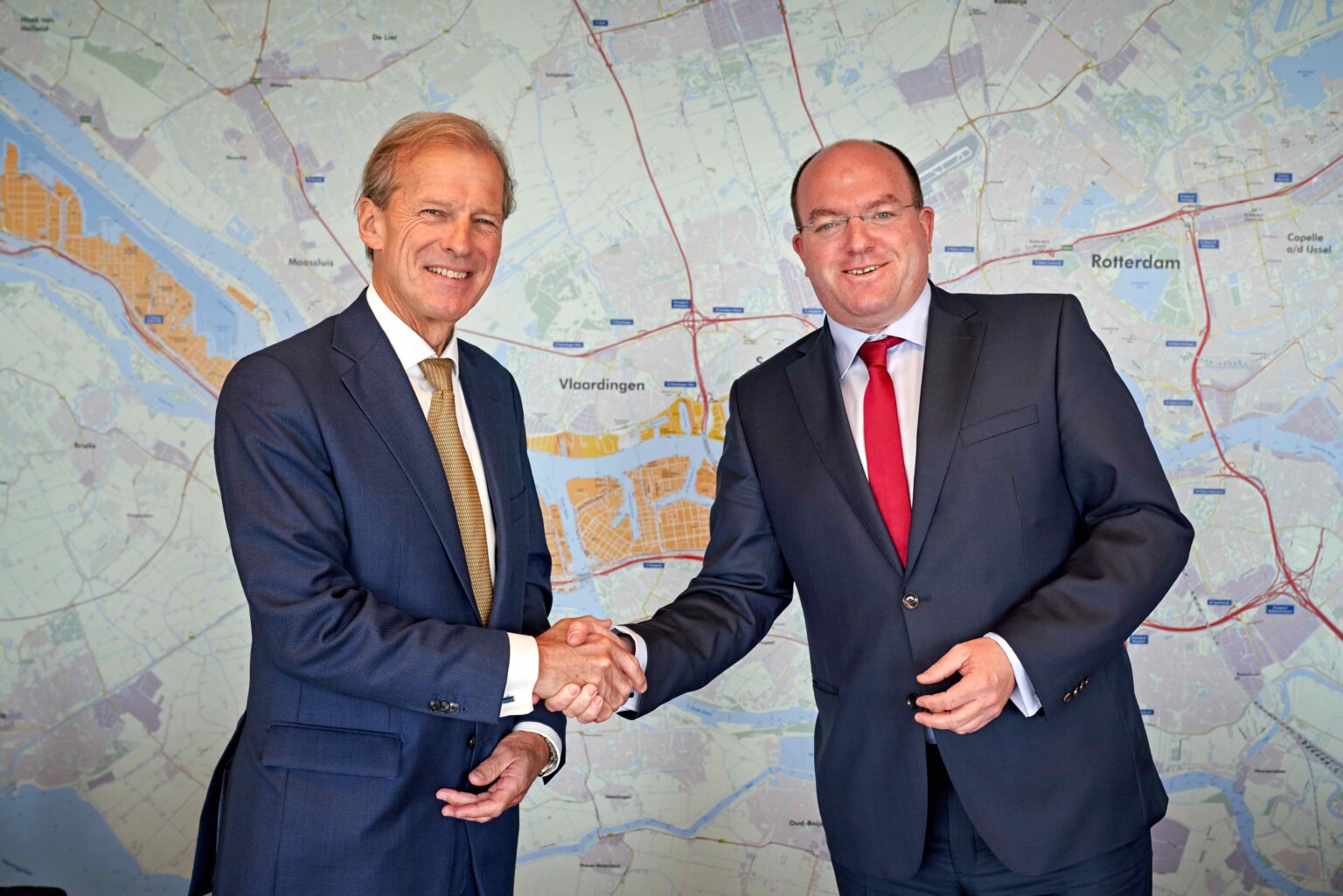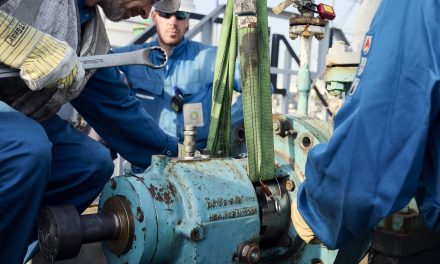
Inniger samenwerking havens Rotterdam en Duisburg

Foto: Havenbedrijf Rotterdam/Marc Nolte
De havenbedrijven van Rotterdam en Duisburg intensiveren hun samenwerking. Mogelijk wordt een waterstofverbinding tussen de havengebieden aangelegd.
In een Letter of Intent (LOI) hebben de twee havenbedrijven hun uit 2020 stammende samenwerking vernieuwd en uitgebreid. Ceo Markus Bangen van Duisport (rechts op de foto) en ceo Allard Castelein van het Havenbedrijf Rotterdam ondertekenden de nieuwe samenwerkingsovereenkomst.
Rotterdam en Duisburg
Hierin spreken de havenbedrijven de ambitie uit om het containertransport tussen de havens te digitaliseren. Ook is afgesproken om met de port community-systemen Portbase van Rotterdam en RheinPorts Information System van Duisberg samen op te trekken. Op het gebied van de energietransitie onderzoeken de twee havens of ze bij de ontwikkeling van waterstof-hubs kunnen samenwerken. Rotterdam in de rol als ‘waterstofpoort naar Europa’ en Duisburg als hub voor Duitsland. Een fysieke waterstofverbinding zou voor de hand liggen.
‘Positieve stap’
“Digitalisering en energietransitie zijn net zo belangrijk voor de strategie van Duisport als voor de onze. Wij geloven in de kracht van samenwerking met gelijkgestemde organisaties. Deze LOI is een positieve stap in die richting”, licht Castelein toe.
Zie ook: Walstroomproef bij Vopak in Botlek
English translation
Intensified cooperation between ports of Rotterdam and Duisburg
The port companies of Rotterdam and Duisburg are intensifying their cooperation. It is possible that a hydrogen connection between the port areas will be built.
In a Letter of Intent (LOI), the two port companies have renewed and expanded their cooperation, which dates back to 2020. Duisport’s CEO Markus Bangen (right on the photo) and CEO Allard Castelein of the Port of Rotterdam Authority signed the new cooperation agreement.
Hydrogen hubs
In it, the port companies express their ambition to digitalise container transport between the ports. They have also agreed to work together on the port community systems Portbase from Rotterdam and RheinPorts Information System from Duisberg. In the field of energy transition, the two ports are investigating whether they can cooperate in the development of hydrogen hubs. Rotterdam in its role as ‘hydrogen gateway to Europe’ and Duisburg as a hub for Germany. A physical hydrogen connection would be the obvious choice.
‘Positive step’
“Digitalisation and energy transition are as important to Duisport’s strategy as they are to ours. We believe in the power of cooperation with like-minded organisations. This LOI is a positive step in that direction,” Castelein explains.









